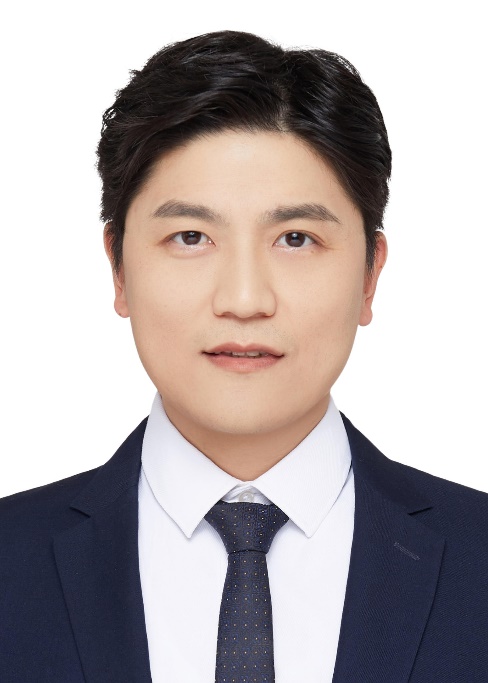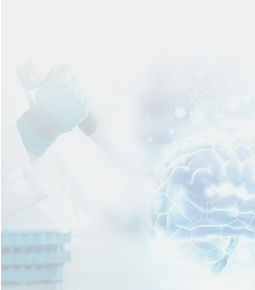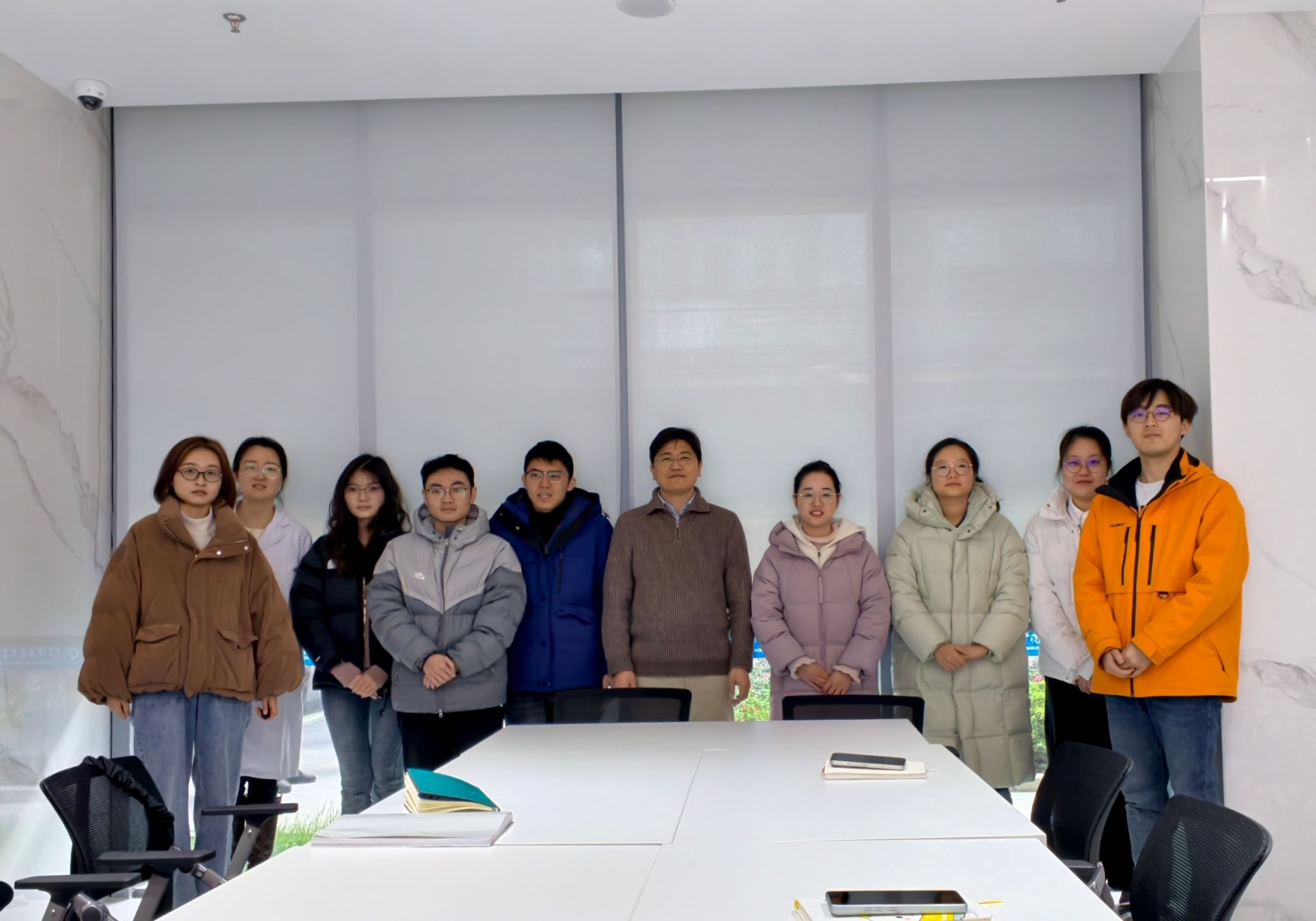Liang Zhang,Ph.D.,Senior Investigator
E-mail: lzhang@shsmu.edu.cn
Oligodendrocyte; myelination; remyelination
Education:
B.S. 2003, Wuhan University;
Ph.D. 2008, Center for Excellence in Molecular Cell Science, CAS (Shanghai Institute of Biochemistry and Cell Biology, SIBCB);
Working experience:
2009-2014, Postdoctoral Fellow, UT Southwestern Medical Center, Dallas, USA;
2014-2022, Associate Professor, School of Life Sciences, Xiamen University;
2022 -2024, Professor, School of Life Sciences, Xiamen University;
2024-Now, Professor, Songjiang Institute, Shanghai Jiao Tong University School of Medicine, China.
Professor Zhang is mainly engaged in research on glial cells and white matter, studying the pathogenesis of demyelination-related diseases, and providing potential strategies for the diagnosis and treatment of brain diseases. In recent years, he has found that nuclear pore proteins regulate the physiological functions and mechanisms of nerve cell development and myelin production by constructing a transcriptional activation complex around the nuclear pore; has discovered the autocrine regulatory mechanism of oligodendrocytes mediated by vesicles and the function of histone methylation modification in adult glial cell regeneration; and has revealed the function of microglia in feeling the hardness of Aß amylid plaques, thereby limiting the course of Alzheimer's disease. In recent years, as a corresponding or co-corresponding author, he published papers in international academic journals such as Neuron, Developmental Cell, J Clin Invest, Nat Commun, etc.
 Liang Zhang
Liang Zhang
Research interests: Oligodendrocyte; myelination; remyelination
Hypomyelination or damage of the white matter in the central nervous system are the main factor of neurological diseases, such as cerebral palsy, hypoxic-ischemic encephalopathy and multiple sclerosis. This injury process involves biological mechanisms such as nerve cell development, regeneration, and cell stress. We focus on the changes in cell plasticity during neural development and regeneration after injury. We aim to understand the key regulatory genes and mechanisms of action in these processes, explore strategies to promote white matter development and injury repair, and reveal the function and mechanism of white matter in brain function and major brain diseases.
-
Wenxiu Dai#, Zhixiong Liu#, Minbiao Yan, Ximing Nian, Fan Hong, Zhihao Zhou, Chaomeng Wang, Xing Fu, Xuewen Li, Mengyun Jiang, Yanqin Zhu, Qiuying Huang, Xiaoyun Lu, Lichao Hou, Ning Yan, Qin Wang, Jin Hu, Wei Mo, Xueqin Zhang, Liang Zhang*(2024). Nucleoporin Seh1 controls murine neocortical development via transcriptional repression of p21 in neural stem cells, Developmental Cell Jan 24

-
Li Li#, Daopeng Li#, Di Sun#, Xueqin Zhang#, Wanying Lei, Mei Wu, Qiuying Huang, Ximing Nian, Wenxiu Dai, Xiaoyun Lu, Zhihao Zhou, Yanqin Zhu, Yunshan Xiao, Ling Zhang, Wei Mo, Zhixiong Liu, and Liang Zhang* (2023). Nuclear import carrier Hikeshi cooperates with HSP70 to promote murine oligodendrocyte differentiation and CNS myelination, Developmental Cell Oct 17:S1534-5807(23)00489-6

-
Wu M#; Li M#; Liu W#; Yan MB; Li L; Ding WC; Nian XM; Dai WX; Sun D; Zhu YQ; Huang QY; Lu XY; Cai ZY; Hong F; Li XW; Zhang L; Liu ZX; Mo W; Zhang XQ; Zhang L* (2023). Nucleoporin Seh1 maintains Schwann cell homeostasis by regulating genome stability and necroptosis. Cell Rep 42, 112802.

-
Hu J#*; Chen Q#; Zhu HR#; Hou LC#; Liu W; Yang QH; Shen HD; Chai GL; Zhang BX; Chen SX; Cai ZY; Wu CX; Hong F; Li HD; Chen SF; Xiao NA; Wang ZX; Zhang XQ; Wang B; Zhang L*; Mo W* (2023). Microglial Piezo1 senses Aβ fibrils stiffness to restrict Alzheimer’s disease. Neuron 111,1-15. (Best of Neuron 2022-2023 and Highlighted by Neuron)

-
Liu ZX #; Yan MB#; Lei WY#; Jiang RC; Dai WX; Chen JL; Wang CM; Li L; Wu M; Nian XM; Li DP; Sun D; Lv XY; Wang CY; Xie CC; Yao LM; Wu CM; Hu J; Xiao NA; Mo W; Wang ZX* and Zhang L* (2022). Sec13 promotes oligodendrocyte differentiation and myelin repair through autocrine pleiotrophin signaling. J Clin Invest 132(7): e155096.

-
Zhang KK #; Chen SX#; Yang QH; Guo SH; Chen Q; Liu ZX; Li L; Jiang MY; H. Li HD; Hu J; Pan X; Deng WB; Xiao NA; Wang B; Wang ZX*; Zhang L* and W. Mo* (2022). The Oligodendrocyte Transcription Factor 2 OLIG2 regulates transcriptional repression during myelinogenesis in rodents. Nat Commun 13: 1423.

-
Liu ZX #; Yan MB#; Liang YJ#; Liu M; Zhang K; Shao DD; Jiang RC; Li L; Wang CM; Nussenzveig D; Zhang KK; Chen SX; Zhong CQ; Mo W; Fontoura B; Zhang L* (2019). Nucleoporin Seh1 Interacts with Olig2/Brd7 to Promote Oligodendrocyte Differentiation and Myelination. Neuron 102: 587-601 (Highlighted by Neuron and Faculty1000)











 Location:
Location:
